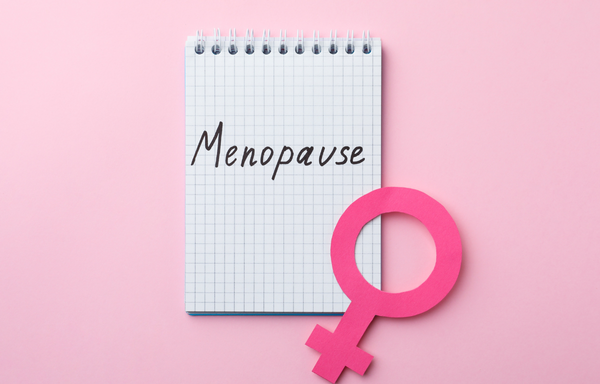

What to Know About Menopause and Insulin Resistance
Menopause is often blamed for frustrating symptoms like weight gain, hot flashes, poor sleep, thinning hair, and dry skin. But what if insulin resistance is the real culprit behind many of these issues?
Most women are told that menopause is just about falling estrogen levels, but insulin plays a much bigger role in how you feel during and after menopause. In fact, insulin resistance is one of the most overlooked factors in menopausal symptoms and long-term health risks.
If you’re struggling with menopause, understanding the role of insulin can help you feel better and protect your long-term health.
What Happens to Insulin During Menopause?
As estrogen and progesterone decline, the body becomes more insulin resistant.
- Estrogen helps keep insulin sensitivity in check. When estrogen levels drop, insulin doesn’t work as well, leading to higher blood sugar and weight gain—especially around the belly.
- With less estrogen and progesterone, insulin has a harder time moving glucose into cells. This means that more insulin is needed, leading to insulin resistance over time.
The result? More belly fat, more cravings, more fatigue, and a higher risk of long-term health issues.
How Insulin Resistance Causes Common Menopausal Symptoms
Many of the frustrating symptoms of menopause can be traced back to poor insulin regulation.
1. Sleep Problems: The Insulin-Melatonin-Serotonin Connection
If you’re waking up at 3 AM every night, insulin may be to blame.
- Insulin affects serotonin, which is needed to make melatonin—the sleep hormone. When insulin is high, serotonin and melatonin levels drop, leading to restless sleep.
- High insulin can cause blood sugar crashes at night, waking you up. If you’ve ever woken up hungry in the middle of the night, this could be why.
- Cortisol (your stress hormone) rises in response to insulin spikes and crashes, making it harder to fall and stay asleep.
Fixing insulin resistance can help regulate melatonin and serotonin, leading to deeper, more restful sleep.
2. Skin Changes: Dryness, Wrinkles, and Collagen Loss
Menopause is known for causing thinner, drier skin, but insulin resistance makes it worse.
- High insulin increases inflammation, which breaks down collagen and speeds up skin aging.
- Insulin resistance leads to more advanced glycation end-products (AGEs), which damage collagen and elastin, making skin sag and wrinkle faster.
- Poor insulin control can reduce skin hydration, leading to dryness and irritation.
Lowering insulin levels can slow skin aging and help maintain collagen, keeping your skin healthier for longer.
3. Facial Hair Growth & Hair Loss: The Androgen-Insulin Connection
If you’ve noticed more facial hair and thinning hair on your scalp, insulin resistance could be playing a role.
- High insulin increases androgens (male hormones) in women, leading to unwanted facial hair growth (chin, upper lip, jawline).
- Insulin resistance can contribute to female pattern hair loss, causing thinning at the crown or temples.
- When insulin is high, it disrupts the normal hair growth cycle, leading to more shedding and slower regrowth.
By improving insulin sensitivity, you can reduce androgen excess and improve hair health.
Health Risks of Insulin Resistance After Menopause
The effects of insulin resistance go far beyond annoying symptoms—it also increases your risk of serious health problems.
1. Increased Risk of Heart Disease
- Menopause already increases the risk of heart disease, but insulin resistance makes it even worse.
- High insulin raises blood pressure, increases inflammation, and leads to clogged arteries.
- Women with insulin resistance are more likely to develop metabolic syndrome, a major risk factor for heart attacks and strokes.
2. Higher Risk of Alzheimer’s & Dementia
- Alzheimer’s is now being called “Type 3 Diabetes” because of its link to insulin resistance.
- High insulin damages brain cells and contributes to memory loss, cognitive decline, and dementia.
- Women are already at a higher risk for Alzheimer’s after menopause, and insulin resistance makes it worse.
3. Increased Risk of Osteoporosis
- Insulin resistance can interfere with bone metabolism, leading to weaker bones.
- Women with high insulin levels may have a higher risk of fractures after menopause.
- Balancing insulin can help protect bone density and reduce osteoporosis risk.
4. More Severe Hot Flashes
- Studies show that insulin resistance is linked to worse hot flashes.
- High insulin makes blood vessels less flexible, which can make hot flashes more intense.
- Balancing insulin can help regulate blood flow and reduce the frequency and severity of hot flashes.
If menopause feels like an uphill battle, don’t just blame estrogen—insulin may be the real culprit. Understanding and managing insulin could be the key to getting your energy back, sleeping through the night, and feeling like yourself again.
References
De Paoli M, et al. The Role of Estrogen in Insulin Resistance: A Review of Clinical and Preclinical Data. Am J Pathol. 2021 Sep;191(9):1490-1498. doi: 10.1016/j.ajpath.2021.05.011. Epub 2021. Read more






















